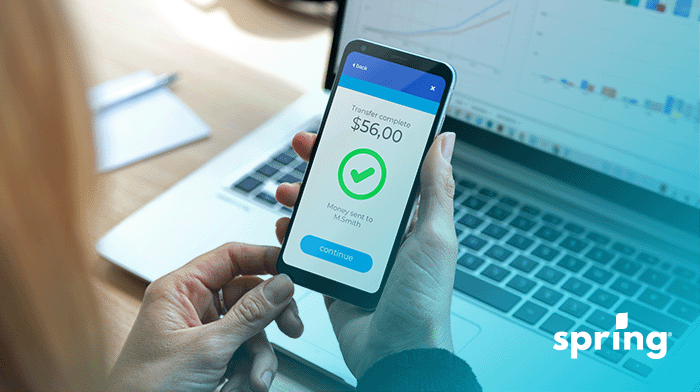What is a Private Mortgage Lender?
A private mortgage lender is essentially an individual or institution that isn’t a bank. They see financing a mortgage as an investment and are more likely to finance those with lower credit scores or poor financial history. Private lenders are also more likely to finance loans for unique types of housing, have a source of income that isn’t traditional or are only purchasing for the short term.
Because, in Canada, private mortgage lenders differ from the banks, their loan terms are often shorter than the banks. While a traditional financial institution will finance a loan from 3 years to 5 years for a mortgage term, private lenders tend to finance anywhere from 6 months to 3 years. These short term loans can come with higher interest rates, though, depending on your individual financial situation. The good news is though, if you do have a high interest rate through a private lender, then these payments are reported to the credit bureaus. This will help with your credit score, increasing your chances of getting a lower interest rate when you renew.
Types of Private Mortgage Lenders in Canada
Essentially there are 3 different types of private mortgage lenders. While there are certain rules all lenders have to follow when giving money for a mortgage, lenders that aren’t federally regulated have a bit more flexibility than that of traditional lenders.
Mortgage Investment Corporations
Individuals who invest private funds and charge interest
Investor groups
Whichever private lender you decide to go with, there is normally only interest payments required for the short term that they are active. Using one of these types of private mortgage solutions essentially allows you to build your credit in order to refinance your mortgage at a lower interest rate.

Reasons for Using a Private Lender
While using a private mortgage can be a bit scarier than using a traditional lender like a bank or credit union, There are many reasons why you may choose to use a private lender. Here are a few reasons why you may choose to, or can only get a loan with a private lender.
Don’t have time to wait for a traditional mortgage loan approval.
Have a poor credit score
Need money for home repairs or other emergencies (home equity)
Buying a property that is considered non-traditional by a bank or credit union
Debt consolidation (Consolidation mortgage)
Stop a power of sale or even a foreclosure
Because most private mortgage lenders only do short term situations, these are ideal if you need money fast, just until you can secure a traditional mortgage. Other private lenders will factor principal payments in, but it just depends which of the many private money lenders you use. Some private lenders will even finance a longer term.
That being said though, just because they make you an offer, that doesn’t mean that you need to accept it. Ultimately, you need to select the offer that makes the most sense to you. This is different for everyone. Before you agree though, verify that you are able to comfortably make your payments and select a term that makes the most sense to you. Depending on the mortgage loan that you go with, you may be able to refinance early with little to no penalty. Many private lenders, even though they have higher interest rates, are more likely to go with an open term loan over a closed term loan. Make sure you understand which is which. This will also help you avoid any unnecessary penalties.
Private Lender Fees
Another thing to consider when deciding to go with a private mortgage lender, is the fees. There are usually more than going through the traditional mortgage rate. Some private lending fees you should be expecting are:
Legal and Appraisal Fees
Land Transfer Taxes
Real Estate Fees
Broker and Lending Fees
Private Mortgage Insurance
These fees are important for factor in. Many of these fees are also included in a traditional mortgage. They just might be smaller. The broker fees aren’t going to apply if you use a traditional lender, same with lending fees. Those are subject to the lender that you use.
With broker and lending fees, the lending fee is based on the lender as well as the type of mortgage you are getting. They tend to be higher for second mortgages than for first mortgages. The broker fee is normally between 3%-6%. There may be other fees when it comes to the type of mortgage you are getting as well.
If you are getting a first or second mortgage, just like a standard mortgage, the house you are purchasing is put up as collateral. It is important to keep that in mind when agreeing to the mortgage, Making sure the payments fit your budget is key to ensure you do not lose your home.
Like traditional mortgage lenders, you are able to get home equity loans or debt consolidation mortgages through private lenders. These private loans may come with a penalty fee depending on where you are in your mortgage term and if your mortgage is open or closed. Before you go with either of these options check and see if there are any fees or penalties involved. That being said, the fees are more likely going to affect a debt consolidation mortgage, and both of these types of private mortgage loans will also be considered secured loans with your home as collateral.
First Time Buyers and Private Lenders
Most private lenders will lend to first time home buyers, that being said though, you may still not be able to get a mortgage with a private lender if you have bad credit or even a slightly lower credit score. There is a reason for this. As a first time home buyer you are allowed to put as little as 5% down on a home. Mortgages that have less than 20% down payment are required to have CMHC insurance. In order to qualify for CMHC insurance you need to have a credit score of at least 600 or higher,
The CMHC used to allow a credit score of 600, but it has just recently changed to 600. Mortgage rules are becoming stricter making it much more difficult for first time home buyers. That being said, depending on the amount you are purchasing a home for and putting down 20%, you may not be required to get CMHC insurance giving lenders more wiggle room when it comes to mortgage approvals.
Mortgage Rates with Private Lenders
Private mortgage loan rates often have slightly higher percentage rates than that of traditional lenders. On top of that, they also change their rate based on the LTV (Loan to Value) ratio of the mortgage. This is how much you are borrowing compared to how much the home is worth.
The lowest rate using a private lender will be under 60% LTV, It will be slightly higher with an LTV of 70% and the highest will be with an 80% LTV. Anything higher than that is quite risky for private lenders, and they are very unlikely to lend with a LTC higher than 80%.
Along with the mortgage rate, for a first mortgage there will usually be a lender fee of around 1.5%, with that number rising up to 2% for second mortgages. These rates are on top of the 3%-6% broker fees. This alone puts rates 3-4% above traditional lenders.
Private Lenders and B Lenders
While private mortgages are considered to be B lenders, B lenders range wider than just private lenders. They also include some credit unions, and a wide range of different alternative lenders. While many B lenders do not advertise to the public, private lenders don’t at all. The most common way to get a loan through a B lender is by using a mortgage broker.
Mortgage brokers go take your information and use it to reach out to A and B lenders. These lenders then will then let your mortgage broker know if you are approved and what the rate and payments will look like. From there, you are able to decide which lender you would like to choose for your loan.
The important thing to keep in mind if you have to go with a private lender or B lender, is that it isn’t always more expensive than a traditional bank. Sometimes there are just extenuating circumstances for the bank being able to lend to you. An example of this is mobile home mortgages. These types of mortgage loans normally are done through private and B lenders. Most traditional banks do not lend for these mortgages because the land isn’t usually owned.

Private Mortgage Lenders in BC
If you live in British Columbia, you know that housing prices are higher than they have ever been. That being said, people still need to live and that may include purchasing a home. Even with the higher interest rates, the cost of rent has risen tremendously so owning is still the cheaper option for a lot of people.
Because of this many British Columbians are going with private mortgage lenders in order to get the mortgage that they need. As mentioned above, in order to get an alternative mortgage, your best option is to go through a mortgage broker. A mortgage broker will look at options from not only the best private mortgage lenders, they will also try to get offers from traditional lenders. Not only does this save you time from having to go from financial institution to financial institution, it helps to ensure you are able to secure a mortgage.
Private Lenders in Alberta
In Alberta, the cost of homes has also increased. While it is only roughly around 38% compared to BC’s average of 58%, it is still significant. Pair these higher home prices with higher unemployment rates, high prime rates and the cost of inflation, people are turning to mortgages to combat the cost of rent.
No matter where you go, it is expensive to live in Canada, so finding the best way to invest in a home can be great for your financial future. While a few years ago you may have been approved for a traditional mortgage in Alberta, it is much more difficult of a process now. That can even be seen in those with current mortgages and either had to refinance or had their rates increase due to a variable mortgage. Just like with BC, the best way to see all of your options in Alberta, is to get a mortgage broker.
By discussing what you can afford with your mortgage broker they will be able to help you find the right mortgage with the right lender, whether or not that is a private lender. Because of the current economic climate and high prime rates, passing the mortgage stress test is more difficult. With traditional banks having federal and provincial restrictions, this leaves room for private lenders to help you secure a mortgage.
If you already own a home and need to tap into your home’s equity or are looking to get a second mortgage, a mortgage broker can help you find a lender for that as well. In Alberta, you can get a mortgage with an LVT of up to 70% currently.
Private Lenders in Ontario
If you are looking for a private lender you are likely to get similar rates to the rest of Canada. That’s because lenders lend money all over Canada. The type of private lender you will get will ultimately depend on the type of mortgage that you are looking for. Different lenders specialize in different types of mortgages.
Because Ontario is the most populated province in Canada, it is also one of the most expensive. Just like the rest of Canada, it has seen a large increase in the price of homes recently. With the Bank of Canada’s attempts to slow down the process of inflation, it is more difficult than ever to purchase a home.
That being said, if you are looking to purchase a home in a smaller town it is likely going to be much more affordable than purchasing in the city. Either way, because of this, many people who live in Ontario are turning to mortgage lenders to help them get into a mortgage, access the equity in their home or to even get a second mortgage.
Rates for a private lender in Ontario are the same as they are across Canada. They tend to be higher due to lender fees and broker fees, In some cases private mortgage interest rates can go as high as 13%. Even though this is quite expensive, not having the regulations in place that a traditional lender, it can be a good option to get you into a mortgage just until you are able to reapply. In the meantime, getting approved and paying a mortgage on time will have a positive impact on your credit score which can make a big difference when it comes time to refinance.
Mortgages with Spring Financial
When going through a bank or a mortgage broker isn’t an option for you, or you are looking for an alternative lender that can help you get the money you need fast, Spring Financial can help. We specialize in loans for those with all credit scores and can get you your money as soon as the same day you are approved. But did you also know that we do mortgages? That’s right! Whether you are looking to consolidate your debt, tap into your home’s mortgage, refinance your mortgage or purchase your first home, we can help.
Another great thing about our financial products is that they can help you increase and maintain your credit score. All of our products report monthly to both Transunion and Equifax. Even if you are already in a good credit standing, having all positive payments reports will only increase your credit score further.
If you are looking to consolidate your debt, you can apply online for a personal loan. If you are looking for a mortgage or to tap into your home equity, apply now and let one of our licensed specialists guide you through the process. You are also welcome to give us a call at 1-888-781-8439 or connect with one of our agents through chat.








